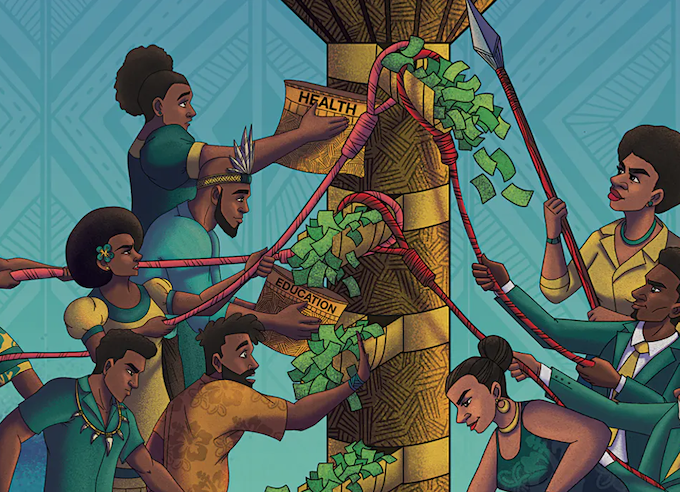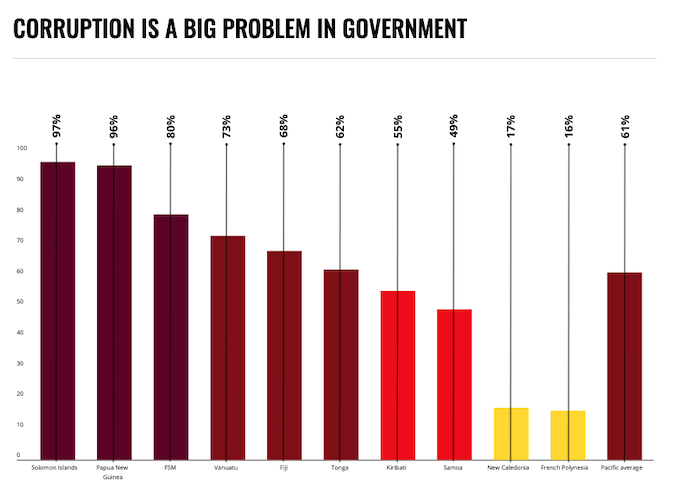
Asia Pacific Report newsdesk
Pacific Islanders believe corruption is a big problem in both their governments and the business sector, says a new report.
About one third of 6000 interviewees across the region believe that most or all members of parliament and staff in heads of government’s offices are involved in corruption, says Transparency International’s Global Corruption Barometer – Pacific 2021.
The survey subjects across 10 countries and territories were asked what they thought about corruption, if they have directly experienced it, and whether things could change.
Transparency International says the result is the most extensive public opinion data on corruption ever gathered in the region.
Corruption was perceived to be worst in Solomon Islands (97 percent) and Papua New Guinea (96 percent), followed closely by the Federated States of Micronesia (80 percent). It is also bad in Vanuatu (73 percent), Fiji (68 percent) and Tonga (62 percent).
Despite more than half of respondents reporting a “fair amount” or a “great deal” of trust in their government to do a good job and treat people fairly, 61 percent believe corruption is a significant problem in their government and 56 percent think it is getting worse.
Impunity also appears to be a problem, with less than a fifth of respondents (18 percent) believing that corrupt officials frequently face appropriate consequences for their actions.
Added to this, only 14 percent believe their government regularly considers them when making decisions.
Bribery common
About one in three paid a bribe
“One of the most significant results was how often ordinary people in the Pacific directly encounter corruption in their daily lives,” says the report.
“Thirty-two percent of interviewees recently paid a bribe to receive public services – a higher rate than any other region surveyed by Transparency International.”
However, rates differ widely by country.
The most common reason given across the region for bribery is to receive a quicker or better public service.
Bribery appears to be a problem across a range of government services, from applying for official government documents to dealing with the police.
Only 13 per cent of those who paid a bribe for a public service reported it. This rises to around 30 percent in Fiji and Kiribati.
‘Sextortion’ also a problem
“Even more worrying is that 38 percent of respondents say they or someone they know have personally experienced ‘sextortion’, where an official requests sexual acts in exchange for an essential government service,” says the report.
About a quarter of respondents have been offered a bribe for their votes. This has serious consequences for the integrity of national and local elections.
In addition, 15 percent of people have received threats of retaliation if they do not vote in a specific way.
It is not only their governments which Pacific Islanders are concerned about. A majority of people interviewed feel that corruption is a big problem in business, too.
“A corruption ‘hotspot’ appears to be government contracts, which more than two thirds of respondents believe businesses secure through bribes and connections,” the report says.
“Almost half of the people we surveyed think there is little control over companies [which] extract natural resources, which is of particular concern given that this is one of the largest industries in the region.”
The good news, says Transparency International, is that “more than 70 percent of respondents say that ordinary people can help to fight corruption”.
“More than 60 percent also think their government is doing a good job at combating corruption”














































